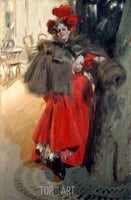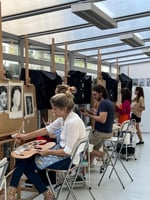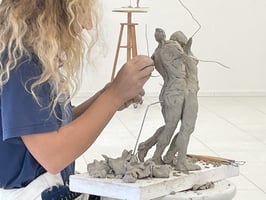Perfecting the Art: The Importance of Deliberate Practice at MAA
Perfecting the Art: The Importance of Deliberate Practice at MAA
Hey there, fellow art enthusiasts! Whether you're a seasoned artist or just dipping your toes into the creative pool, you've probably heard the phrase "practice makes perfect." But have you ever wondered what kind of practice really makes a difference? Well, let me introduce you to the concept of deliberate practice and how it can help you perfect your art at MAA.
Now, you might be thinking, "What's so special about deliberate practice? Can't I just pick up a brush and start painting?" Well, my friend, deliberate practice is like the secret ingredient that takes your art to the next level. It's not about mindlessly going through the motions; it's about actively pushing yourself outside your comfort zone and focusing on improving specific skills.
But what exactly does deliberate practice involve? Let's break it down. First and foremost, it requires setting clear goals. Whether you want to improve your shading techniques or master the art of perspective, having a specific target in mind will help you stay focused and motivated. It's like having a roadmap to guide you on your artistic journey.
Next, deliberate practice demands your full attention. No distractions, no half-hearted attempts. When you're engaged in deliberate practice, you need to be present in the moment and fully committed to the task at hand. This means putting your phone on silent (or better yet, in another room) and creating a conducive environment that allows you to concentrate and let your creativity flow.
Another crucial aspect of deliberate practice is receiving feedback. Don't be afraid to seek constructive criticism from fellow artists or even your instructors at MAA. Feedback is like a compass that helps you navigate the vast ocean of artistry. It provides valuable insights, highlights areas for improvement, and gives you a fresh perspective on your work. Embrace feedback as a tool for growth and use it to refine your skills.
Now, let's address the elephant in the room: the time commitment. Deliberate practice is not about spending countless hours mindlessly doodling. It's about quality over quantity. Research suggests that engaging in focused practice for shorter durations, like 20-30 minutes at a time, can yield better results than marathon sessions. So, even if you're pressed for time, remember that every minute counts. Carve out small pockets of dedicated practice time, and watch your skills soar.
Lastly, don't forget to enjoy the process. Art is all about self-expression and passion, so make sure to infuse your deliberate practice sessions with a sense of joy. Experiment with different techniques, explore new subject matters, and don't be afraid to make mistakes. After all, even the greatest artists had to start somewhere.
So, my fellow art aficionados, if you're serious about perfecting your art at MAA, consider incorporating deliberate practice into your routine. Set goals, focus your attention, seek feedback, manage your time wisely, and most importantly, have fun along the way. Remember, deliberate practice may not be essential, but it can be the key to unlocking your artistic potential. Happy creating!
Hey there, fellow art enthusiasts! Whether you're a seasoned artist or just dipping your toes into the creative pool, you've probably heard the phrase "practice makes perfect." But have you ever wondered what kind of practice really makes a difference? Well, let me introduce you to the concept of deliberate practice and how it can help you perfect your art at MAA.
Now, you might be thinking, "What's so special about deliberate practice? Can't I just pick up a brush and start painting?" Well, my friend, deliberate practice is like the secret ingredient that takes your art to the next level. It's not about mindlessly going through the motions; it's about actively pushing yourself outside your comfort zone and focusing on improving specific skills.
But what exactly does deliberate practice involve? Let's break it down. First and foremost, it requires setting clear goals. Whether you want to improve your shading techniques or master the art of perspective, having a specific target in mind will help you stay focused and motivated. It's like having a roadmap to guide you on your artistic journey.
Next, deliberate practice demands your full attention. No distractions, no half-hearted attempts. When you're engaged in deliberate practice, you need to be present in the moment and fully committed to the task at hand. This means putting your phone on silent (or better yet, in another room) and creating a conducive environment that allows you to concentrate and let your creativity flow.
Another crucial aspect of deliberate practice is receiving feedback. Don't be afraid to seek constructive criticism from fellow artists or even your instructors at MAA. Feedback is like a compass that helps you navigate the vast ocean of artistry. It provides valuable insights, highlights areas for improvement, and gives you a fresh perspective on your work. Embrace feedback as a tool for growth and use it to refine your skills.
Now, let's address the elephant in the room: the time commitment. Deliberate practice is not about spending countless hours mindlessly doodling. It's about quality over quantity. Research suggests that engaging in focused practice for shorter durations, like 20-30 minutes at a time, can yield better results than marathon sessions. So, even if you're pressed for time, remember that every minute counts. Carve out small pockets of dedicated practice time, and watch your skills soar.
Lastly, don't forget to enjoy the process. Art is all about self-expression and passion, so make sure to infuse your deliberate practice sessions with a sense of joy. Experiment with different techniques, explore new subject matters, and don't be afraid to make mistakes. After all, even the greatest artists had to start somewhere.
So, my fellow art aficionados, if you're serious about perfecting your art at MAA, consider incorporating deliberate practice into your routine. Set goals, focus your attention, seek feedback, manage your time wisely, and most importantly, have fun along the way. Remember, deliberate practice may not be essential, but it can be the key to unlocking your artistic potential. Happy creating!




